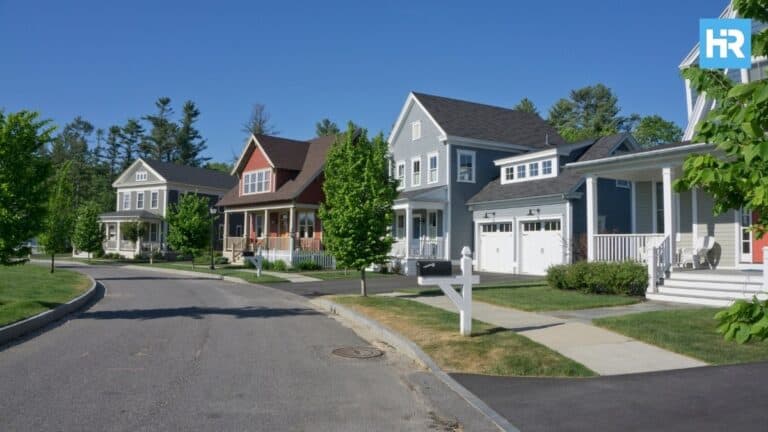
Now that election season is over, you might wonder if it actually affected the housing market.
Every election cycle, there’s a lot of talk about how the market might change, especially with housing prices and supply being such big issues.
But does a presidential election affect your chances to buy or sell a home?
Let’s break it down and see what’s actually happening out there.
- Home buyers and sellers often pause their plans during election time, causing a slight slowdown.
- Even if a candidate has strong housing policies, they likely won’t affect the market immediately.
- Mortgage rates and the number of homes available usually have a much bigger effect on the market than election outcomes.
Do Elections Really Slow Down the Housing Market?
Every election year, people talk about a “pause” in the housing market, where some buyers and sellers sit tight while they wait to see who wins before they make any major decisions.
And this year was no exception.
There’s a bit of hesitation as people weigh the potential changes a new president might bring.
Real estate experts say this slight slowdown does happen, but it’s often pretty mild.
We’re not talking about a housing standstill here—just a little less activity as some people play it safe until things feel stable.
While many think interest rates, home prices, and available inventory could change dramatically, broader economic factors usually drive these numbers, not the election results.
Some buyers might pause, but if you plan to buy or sell, experts agree: go for it.
Waiting for political outcomes isn’t usually worth it, especially when home prices continue rising.
Post-Election: What to Expect from Housing Policies
Now that we know who won, we can discuss their housing plans.
Each candidate had ideas about addressing housing challenges, but any big changes from the government won’t happen right away.
Kamala Harris, for example, plans to build 3 million new homes over the next four years and provide down payment assistance for first-time buyers.
But these goals require Congress’s help, so even the most enthusiastic policies won’t change things overnight.
On the other hand, Trump talked about opening federal land for housing and offering tax breaks to first-time buyers.
Like any big policy idea, it will take time, so we likely won’t see changes in the housing market immediately.
If you were hoping for immediate shifts, keep in mind that housing policy is a slow process.
Should You Buy or Sell Now or Wait?
If you’ve been wondering whether to jump into the market or hold off, the experts have some clear advice: go ahead.
Once you buy a home, you start building equity and can refinance later if rates drop.
Plus, waiting it out doesn’t necessarily give you an edge—there’s no guarantee that prices or interest rates will suddenly become more favorable just because an election is over.
Home values are expected to keep going up, so if your finances are in order, now is a good time to make your move.
Most analysts agree that the election results don’t make much difference in the immediate real estate market.
So, if you plan to buy or sell, don’t let the recent election hold you back.
A Look at Hudson Valley: Local Trends and Election Effects
In certain areas, like New York’s Hudson Valley, the effects of the election feel a little more obvious.
The Hudson Valley market has been under pressure even before election season due to a lack of inventory, high interest rates, and the ripple effects of the pandemic.
Undoubtedly, election-related uncertainty has added to the existing challenges.
Here, some buyers and sellers paused, waiting for the election outcome before making any big decisions.
However, with the election results out, real estate agents predict that people will start making moves again.
The real estate market typically slows down in winter, but experts in Hudson Valley believe it might be busier than usual as those who waited for the election results jump back in.
For those in this region, the end of the election season might even mean a faster-than-usual recovery in the housing market.
The Real Drivers Behind Housing Market Changes
Beyond election results, other forces are having a major effect on the housing market right now, like interest rates and recent changes in how real estate agents charge commissions.
The National Association of Realtors (NAR) settled an antitrust lawsuit earlier this year, ending the requirement that buyers cover agents’ commissions.
Now, commissions are up for negotiation. And this could be a game-changer for both buyers and agents.
High interest rates have also made sellers reluctant to list their homes, especially those with ultra-low mortgage rates from a few years back.
Imagine trading in your 3% mortgage for a 7% one—not appealing in the slightest.
Inventory is low because people don’t want to lose those good rates, which limits options for buyers.
Experts say we may see more listings when interest rates drop closer to 5%, but this could take a while.
Mid-Range Homes Are Selling Fast
Despite fewer buyers overall, certain types of homes are still flying off the market—mainly mid-range properties priced between $300,000 and $450,000.
These homes tend to attract buyers who need to move for work, school, or other life events.
Even with fewer buyers, there’s plenty of competition for these properties.
In fact, many are getting multiple offers, some even over the asking price.
But things look a bit different for those of you in the luxury market.
Homes over $1 million are taking longer to sell, and some sellers are reducing prices to attract more interest.
While mid-range homes are still in demand, luxury properties are sitting longer, which reflects a shift back toward pre-pandemic market trends.
What’s Next for the Housing Market?
With the election now behind us, you might expect a big market shift, but the truth is more gradual.
Spring is usually the busiest season in real estate, and experts anticipate that the market will ramp up again around then, especially if interest rates dip.
We may see even more action as mortgage rates approach the 5% mark in 2025, which will make the market friendlier for buyers and sellers.
In places like Hudson Valley, where demand has been high and inventory low, things are starting to settle back to pre-pandemic norms.
Prices are stabilizing, and while we’re seeing fewer bidding wars, well-priced homes are still moving quickly.
Conversely, the luxury market continues to see a longer sale cycle, with some sellers lowering prices to catch buyers’ attention.
In summary, although elections create a temporary market lull, they do not significantly affect the housing market overall.
The real movers in this market are interest rates, inventory, and regional trends.
If you’re ready to buy or sell, focus on what works for you financially rather than waiting for political outcomes to dictate your decision.









